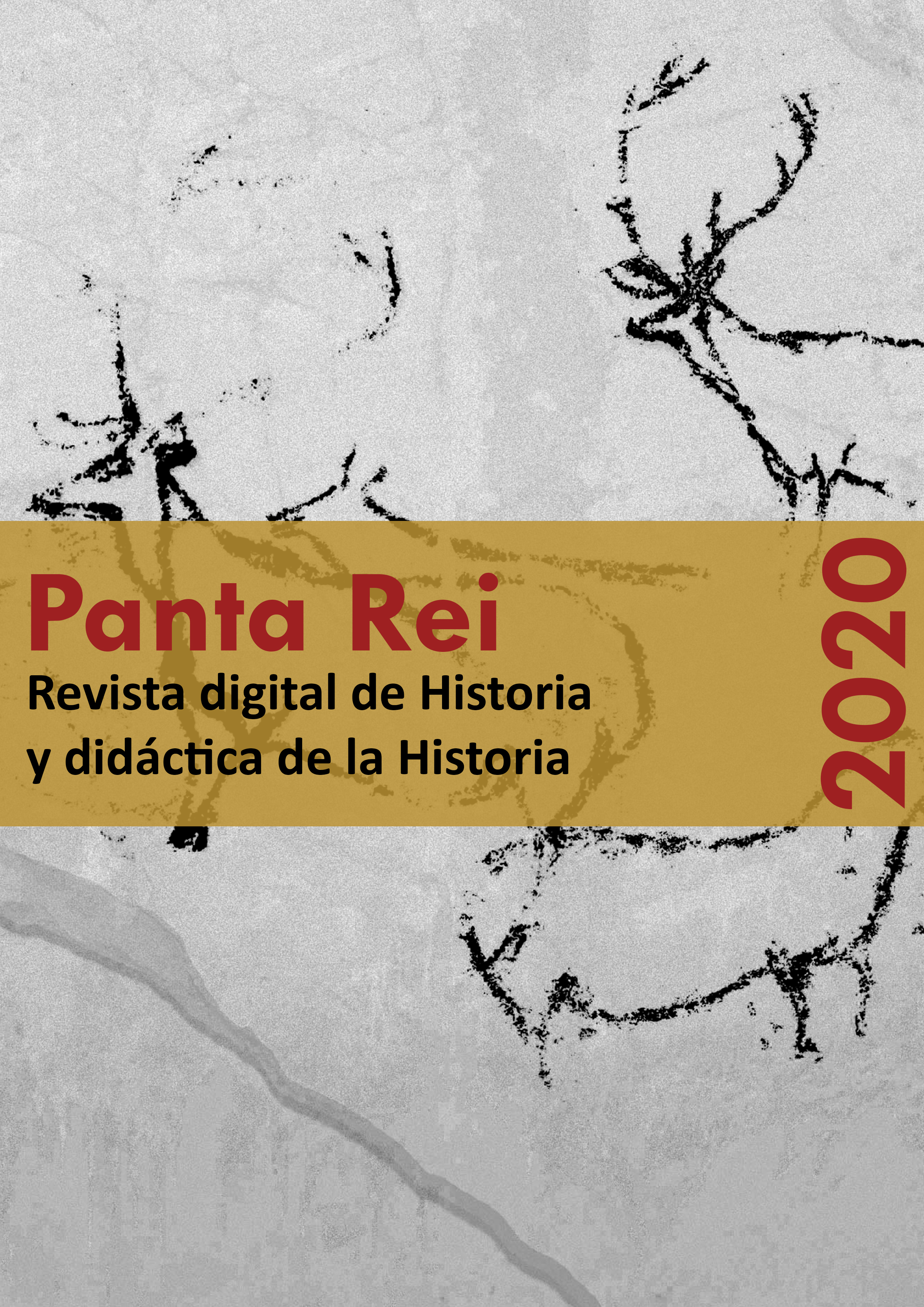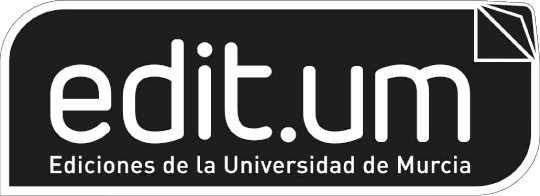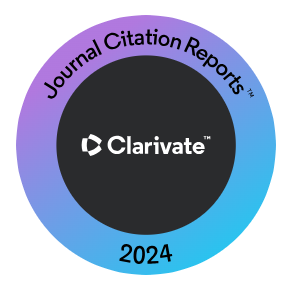Does Gender Matter while Teaching Training in History? Gender Perspective Assessment by Master's Degree in Secondary Education Teaching Students
Supporting Agencies
- Ministerio de Ciencia, Innovación y Universidades
Abstract
This article assesses trainee teachers’ appraisal of women history and socially relevant subjects as gender. The aim is to evaluate how participants value gender into teaching and learning processes and in regard to history teaching and research. Thus, discourse and statements related to gender have been analysed and categorized by means of initial surveys. The sample consists of 70 students from the Master’s degree in Secondary Education Teaching (University of Valencia, years 2016-2017 and 2017-2018, majoring in Geography and History). Results have been discussed according to the previous gender training and they also take into account gender bias.
Downloads
-
Abstract1336
-
PDF (Español (España))708
-
EPUB (Español (España))223
References
Alaminos, A. y Castejón, J. L. (2006). Elaboración, análisis e interpretación de encuestas, cuestionarios y escalas de opinión. Alicante: Universidad de Alicante.
Alario, T. (2008). Arte y Feminismo: Your Body Is a Battleground. Nerea: San Sebastián.
Alonso, A. M. (1998). El sexismo en el aula. Los valores y la didáctica de las Ciencias Sociales. Actas del IX Simposium de Didáctica de las Ciencias Sociales (pp. 309-316). Lleida: Universitat de Lleida.
Álvarez-Gayou, J. L. (2003). Cómo hacer investigación cualitativa. Fundamentos y metodología. México: Paidós.
Aresti, N. (2010). Masculinidades en tela de juicio. Madrid: Cátedra.
Beauvoir, S. (2005). El segundo sexo. Madrid: Cátedra (1.ª edición de 1949).
Bereni, L., Chauvin, S., Jaunait, A. y Revillard, A. (2008). Introduction aux «gender studies». Manuel des études sur le genre. Bruxelles: De Boek.
Blanco, N. (2000). El sexismo en los materiales educativos de la ESO. Sevilla: Instituto andaluz de la mujer.
Bolufer, M. (2018). Mujeres y hombres en la historia. Una propuesta historiográfica y docente. Granada: Comares.
Bourdieu, P. (1997). Masculine Domination Revisited. Berkeley Journal of Sociology. Youth and youth culture, 41, 189-203.
Butler, J. (1999). El género en disputa. El feminismo y la subversión de la identidad. México: Paidós.
Butler, J. (2006). Deshacer el género. Barcelona: Paidós Ibérica.
Creswell, J. W. (2014). Research design. Qualitative, quantitative and mixed methods approaches. California: Sage.
Crocco, M. S. (1997). Making time for women’s history. When your survey course is already filled to overflowing. Social Education, 61(1), 32-37.
Crocco, M. S. (2006). Gender and social education: What’s the problem? En Ross, E.W. (ed.), The social studies curriculum: Purposes, problems, and possibilities, (pp. 171-193). Albany: State University of New York Press.
Crocco, M. S. y Cramer, J. (2005). Technology use, women, and global studies in social studies teacher education. Contemporary Issues in Technology and Teacher Education, 5(1), 38-49.
Crocco, M. S. y Libresco, A. S. (2007). Gender and social studies teacher education. En S. Sadler y E. Silber (eds.), Gender and teacher education: exploring essential equity questions (pp. 109-164). Mahwah, NJ: Erlbaum.
De Lauretis, T. (1989). Technologies of gender. Essays on theory, film and fiction. Londres: Mcmillan Press.
Eichler, M. (1991). Non-sexist research methods. A practical guide. Nueva York – Londres: Routledge.
Fernández, A. (2001). Las mujeres en la enseñanza de las Ciencias Sociales. Madrid: Síntesis.
Foucault, M. (1990). Vigilar y castigar: nacimiento de la prisión. Madrid: Siglo XXI.
Foucault, M. (2005). La inquietud de sí. Madrid: Siglo XXI.
Garreta, N. y Careaga, P. (1987). Modelos masculino y femenino en los textos E.G.B. Madrid: Serie Estudios 14.
Harding, S. (1987). Feminism and methodology. Bloomington: Indiana University Press.
Hidalgo, E., Juliano, D., Roset, M. y Caba, A. (2003). Repensar la enseñanza de la geografía y la historia. Una mirada desde el género. Barcelona: Octaedro.
Hustvedt, S. (2017). La mujer que mira a los hombres que miran a las mujeres. Ensayos sobre feminismo arte y ciencia. Barcelona: Seix Barral.
Lather, P. (1991). Getting smart: feminist research and pedagogy with / in the post-modern. Nueva York: Routledge.
Lerner, G. (1979). The majority finds its past: placing women in history. Oxford - Nueva York: Oxford University Press.
Lerner, G. (1993). The creation of feminist consciousness. Oxford - Nueva York: Oxford University Press.
López-F. Cao, M. (2001). Modelos, conductas y estereotipos femeninos en la creación icónica. En A. Fernández. Las mujeres en la enseñanza de las Ciencias Sociales (pp. 169-205). Madrid: Síntesis.
López-Navajas, A. (2014). Análisis de la ausencia de las mujeres en los manuales de la ESO: una genealogía de conocimientos ocultada. Revista de educación, 363, 282-308.
McIntosh, P. (1983). Interactive phases of curricular re-vision. Working Paper, 124.
Miles M. B. y Huberman, A. M. (1994). Qualitative data analysis: a sourcebook of new methods. Thousand Oaks, CA: Sage.
Minnich, E. K. (1990). Transforming Knowledge. Philadelphia: Temple University Press.
Mouffe, Ch. (1993). Feminismo, ciudadanía y política democrática radical. Debate feminista, 4(7), 3-22.
Morant, I., Segura, C., Di Febo, G. y Perry, M.ª E. (2013). Arenal y la historiografía feminista española e hispanista en las dos últimas décadas. Arenal, 20(1), 81-105
Morant, I. (2017). Mujeres e historia. La construcción de una historiografía. En Baena, A. y Roselló, E. (coord.), Históricas digital. Mujeres en la Nueva España (pp. 25-54). México: Universidad Nacional Autónoma de México - Instituto de Investigaciones Históricas. Recuperado de http://www.historicas.unam.mx/publicaciones/publicadigital/libros/mujeres/673_04_03_Isabel_Morant.pdf
Nochlin, L. (1989). Women, Art, and Power and other Essays. Londres - Nueva York: Taylor & Francis.
Oakley, A. (1998). Gender, methodology and people’s ways of knowing: some problems with feminism and the paradigm debate in social science. Sociology, 32(4), 707-731.
Opériol, V. (2013). Le genre en histoire: la construction du féminin et du masculin. Le cartable de Clio, 13, 15-23.
Pagés, J. y Sant, E. (2012). Las mujeres en la enseñanza de la historia: ¿Hasta cuándo serán invisibles? Cadernos de Pesquisa do Cdhis, 25(1), 91-117.
Rausell, H. y Talavera, M. (2019). Género y didácticas. Una mirada crítica, una aproximación práctica. Valencia: Tirant lo Blanch.
Rausell, H. (2019). La historia de las mujeres y el derecho al pasado. En Parra, D. y Fuertes, C. (eds.). Reinterpretar la tradición, transformar las prácticas (pp. 237-253). Valencia: Tirant lo Blanch.
Rose, S. O. (2010) ¿Qué es historia de género? Madrid: Alianza Editorial.
Rugna, C. M. (2014). Feministas en sus zapatos: historiografía y enseñanza de la historia. Clio & Asociados. La enseñanza de la historia, 18, 216-231.
Ruiz, A. (2009). Método de encuesta: construcción de cuestionarios, pautas y sugerencias. Reire. Revista d´Innovació i Recerca en Educació, 96-110.
Schiebinger, L. (2004). ¿Tiene sexo la mente? Madrid: Cátedra.
Schiebinger, L. (ed.) (2008). Gendered innovations in science and engineering. Standford: Standford University Press.
Schiebinger, L. (2018). Discurs d´investidura com a doctora “Honoris Causa” per la Universitat de València. Valencia: Universidad de Valencia.
Schneuwly, B. (2015). La didactique des disciplines peut-elle intégrer les questions de genre? Genre, didactique, formation (2-6). París: Centre Hubertine Auclert.
Scott, J. W. (1990). El género, una categoría útil para el análisis histórico. En J. Amelang y M. Nash (comps.). Historia y género. Las mujeres en la Europa moderna y contemporánea (pp. 23-56). Valencia: Alfons el Magnànim.
Scott, J. W. (2008). Género e Historia. México: FCE.
Simons, H. (2011). El estudio de caso: Teoría y práctica. Madrid: Morata.
Stake, R. E. (2007). Investigación con estudio de casos. Madrid: Morata.
Vavrus, M. (2009). Sexuality, schooling, and teacher identity formation: A critical pedagogy for teacher education. Teaching and Teacher Education, 25, 383-390.
Wittig, M. (2006). El pensamiento heterosexual y otros ensayos. Barcelona: Egales.
Wolcott, H. F. (1994). Transforming qualitative data: description, analysis and interpretation. Londres: Sage.
Woyshner, C. (2002). Political history as women’s history: toward a more inclusive curriculum. Theory and Research in Social Education, 30(3), 354-380.
Copyright (c) 2020 Helena Rausell Guillot

This work is licensed under a Creative Commons Attribution-ShareAlike 4.0 International License.
All the contents published in this journal are subject to an Attribution-ShareAlike 4.0 International (CC BY-SA 4.0) Creative Commons License. You are free to: Share — copy and redistribute the material in any medium or format, Adapt — remix, transform, and build upon the material, for any purpose, even commercially. Under the following terms:
Attribution — You must give appropriate credit, provide a link to the license, and indicate if changes were made. You may do so in any reasonable manner, but not in any way that suggests the licensor endorses you or your use.
ShareAlike — If you remix, transform, or build upon the material, you must distribute your contributions under the same license as the original.
Full text of the license is available in: Creative Commons License 












